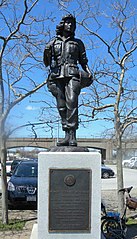33d Sunday of the Year B (18 Nov 2012)
Homily of Fr. Paul Panaretos, S.J.
Entering Kingdom-Time
As each liturgical year closes the weeks before Advent, the scripture selections at the liturgies challenge how we view and read the bible. End-of-the-year scriptures challenge us about time, and time shapes how we think. We remark: ‘Is it time to go?’ ‘Are we there yet?’ ‘I’ve another meeting in half an hour.’ ‘The Year 2012 will end in 44 days, 1062 hours, 63,762 minutes, 3 million, 801,600 seconds.’1 That one was over the top, yet time shapes how we think about the future, even the near future. Time can straightjacket us, and who doesn’t long to be free?
So we leave our time, 60 minutes of it each weekend, to enter together kingdom-time. The Psalmist described it: A thousand years in [God’s] eyes are merely a yesterday [to us].2 Our notion of time contradicts that of the bible, so we set aside the bible; or we refuse to take it seriously; or we feel it’s not for us because it’s outdated—time again!—just not in tune with us.
That’s high and mighty! We are quick to treat the bible arrogantly and think little of it. Then Jesus makes us think with his image-intense language about time and place:
Then the sun will be darkened, and the moon will not give its light, and the stars will be falling from the sky, and the powers in the heavens will be shaken….then they will see ‘the Son of Man coming in the clouds’ with great power and glory, and then he will send out the angels and gather his elect from the four winds, from the end of the earth to the end of the sky.
Those thens—three of them: who doesn’t want each to be a ‘when?’ When will the heavenly lights be darkened? When will we see ‘the Son of Man coming in the clouds’ with great power and glory? When will Jesus send out the angels and gather his elect...from the end of the earth to the end of the sky? With the certitude and exactness of our atomic clocks, we want to know those times so we won’t be caught off guard; so we won’t miss Jesus, the divine Son of Man; so at the very least we’ll have a “date with an angel,” who’ll lead us to freedom.
We don’t taste freedom because we refuse Jesus’ witness that then—his word; and ‘when’—our puny desire—are secret from us who know so much: ...of that day or hour, no one knows, neither angels...nor the Son, but only the Father.
What to do? Enlarge our desire; not figure out Jesus’ image-intense language and read it like a train schedule. How? The Letter to the Hebrews, also dripping with image-intense language, offers this. God raised from death our high priest,3 the divine Son of Man, who took his seat forever at the right hand of God. And the psalm reminds us the faithful person will join Jesus, sharing the fullness of joys in your presence, [O God], the delights at your right hand forever.
We’ll never know how Jesus took his seat forever at the right hand of God. Yet we have experienced it: healing; forgiveness of sin; living faithfully; showing compassion, receiving compassion; feeling grace embrace us, guide us and inspire us to choose, act and speak faithfully.
Those and other revelations of God’s heart are ours! Sitting at the right hand imagines them and stirs us to imagine them. Not a cold fact, no ticket-stub Erie Playhouse gives: sitting at the right hand of God invites us to desire the delights of God here, now, moment by moment. God will take care of the future: [God] will send out the angels and gather his elect from the four winds.
To desire God’s delights is a strong and great desire! That desire transforms our minds, our hearts, how we choose and what we choose. As God’s desire become our desire we enjoy the freedom of the children of God4 even as we wait to enjoy it completely. Now I’m sliding into earthly time, which mutes great desires, and I’m dragging you with me. So. . .
In your daily 15 minutes with Jesus this week
- Step out of time to enter the life of the Trinity.
- Ask your patron saint to present you to Jesus.
- Praise Jesus for proclaiming the delights of the kingdom dawning among us even when we’re unaware.
- Beg Jesus for the grace to take him at his word; to trust God’s secrets and to desire them rather than figure them out to the last detail.
- Close, saying slowly the Lord’s Prayer. Jesus gave it to us to recognize our needs; to ask God to supply them; and to give true freedom to us needy folk enslaved by time, which cannot save.
____________
- At 5:00 p.m., 17 Nov 2012. Check this Countdown Clock.
- Psalm 90.4.
- Hebrews 4.14, from Second Reading, 29th Sunday of the Year (21 October in 2012).
- Romans 8.21.
________________________________________________________________


















